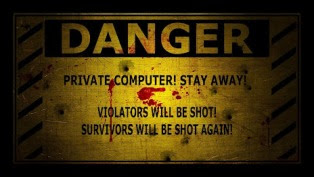In devastating detail, an excerpt from a controversial new book reveals how the big studios, desperate to protect German business, let Nazis censor scripts, remove credits from Jews, get movies stopped and even force one MGM executive to divorce his Jewish wife.
This story first appeared in the Aug. 9 issue of The Hollywood Reporter magazine.
The 1930s are celebrated as one of Hollywood's golden ages, but in an exclusive excerpt from his controversial new book, The Collaboration: Hollywood's Pact with Hitler (Harvard University Press, on sale Sept. 9), Harvard post-doctoral fellow Ben Urwand uncovers a darker side to Hollywood's past.
Drawing on a wealth of archival documents in the U.S. and Germany, he reveals the shocking extent to which Hollywood cooperated and collaborated with the Nazis during the decade leading up to World War II to protect its business.
Indeed, "collaboration" (and its German translation, Zusammenarbeit) is a word that appears regularly in the correspondence between studio officials and the Nazis. Although the word is fraught with meaning to modern ears, its everyday use at the time underscored the eagerness of both sides to smooth away their differences to preserve commerce.
PHOTOS: Hitler's Hollywood: The Films Nazis Loved and Hated
The Nazis threatened to exclude American movies -- more than 250 played in Germany after Hitler took power in 1933 -- unless the studios cooperated. Before World War I, the German market had been the world's second largest, and even though it had shrunk during the Great Depression, the studios believed it would bounce back and worried that if they left, they would never be able to return.
Beginning with wholesale changes made to Universal's 1930 release All Quiet on the Western Front, Hollywood regularly ran scripts and finished movies by German officials for approval. When they objected to scenes or dialogue they thought made Germany look bad, criticized the Nazis or dwelled on the mistreatment of Jews, the studios would accommodate them -- and make cuts in the American versions as well as those shown elsewhere in the world.
It was not only scenes: Nazi pressure managed to kill whole projects critical of the rise of Adolf Hitler.
Indeed, Hollywood would not make an important anti-Nazi film until 1940.
Hitler was obsessed with the propaganda power of film, and the Nazis actively promoted American movies like 1937's Captains Courageous that they thought showcased Aryan values.
Historians have long known about American companies such as IBM and General Motors that did business in Germany into the late 1930s, but the cultural power of movies -- their ability to shape what people think -- makes Hollywood's cooperation with the Nazis a particularly important and chilling moment in history. -- Andy Lewis
VIDEO: Author Ben Urwand Talks 'Hollywood and Hitler'
'Victory Is Ours'
On Friday, Dec. 5, 1930, a crowd of Nazis in Berlin seized on an unusual target: the Hollywood movie All Quiet on the Western Front. Recognized in most countries as a document of the horrors of the First World War, in Germany it was seen as a painful and offensive reenactment of the German defeat.
The Nazis, who had recently increased their representation in the Reichstag from 12 to 107 seats, took advantage of the national indignation toward All Quiet on the Western Front. They purchased about 300 tickets for the first public screening, and as they watched the German troops retreat from the French, they shouted: "German soldiers had courage. It's a disgrace that such an insulting film was made in America!" Because of the disruptions, the projectionist was forced to switch off the film. Nazi propagandist Joseph Goebbels gave a speech from the front row of the balcony in which he claimed that the film was an attempt to destroy Germany's image. His comrades threw stink bombs and released mice into the crowd. Everyone rushed for the exits, and the theater was placed under guard.
The Nazis' actions met with significant popular approval. The situation came to a climax Dec. 11, when the highest censorship board in Germany convened to determine the fate of the film. After a long discussion, the chairman of the board issued a ban: Whereas the French soldiers went to their deaths quietly and bravely, the German soldiers howled and shrieked with fear. The film was not an honest representation of German defeat -- of course the public had reacted disapprovingly. Regardless of one's political affiliation, the picture offended a whole generation of Germans who had suffered through the War.
And so, six days after the protests in Berlin, All Quiet on the Western Front was removed from screens in Germany. "Victory is ours!" Goebbels' newspaper proclaimed. "We have forced them to their knees!"
'STORY: How Jack Warner Tried to Crush the Postwar German Film Industry (Book Excerpt)
In Hollywood, the president of Universal Pictures, Carl Laemmle, was troubled by the controversy surrounding his picture. He was born in Germany, and he wanted All Quiet on the Western Front to be shown there. According to one representative, his company had "lost a fine potential business, for the film would have been a tremendous financial success in Germany if it could have run undisturbed."
In August 1931, Laemmle came up with a heavily edited version of the movie that he was convinced would not offend the German Foreign Office. He made a trip to Europe to promote the new version. The Foreign Office soon agreed to support All Quiet on the Western Front for general screening in Germany, under one condition: Laemmle would have to tell Universal's branches in the rest of the world to make the same cuts to all copies of the film. Late in the summer, Laemmle agreed to cooperate with the request.
As months passed, however, Laemmle, who was Jewish, grew worried about something much more important than the fate of his film. "I am almost certain," he wrote in early 1932, "that [Adolf] Hitler's rise to power … would be the signal for a general physical onslaught on many thousands of defenseless Jewish men, women and children." He convinced American officials that he could provide for individual Jews, and by the time of his death in 1939, he had helped get at least 300 people out of Germany.
And yet at precisely the moment he was embarking on this crusade, his employees at Universal were following the orders of the German government. In the first few months of 1932, the Foreign Office discovered unedited versions of All Quiet on the Western Front playing in El Salvador and Spain. The company apologized. Afterward, there were no more complaints; Universal had made the requested cuts all around the world.
The following year, Laemmle made another concession to the Foreign Office: He postponed The Road Back, the sequel to All Quiet on the Western Front. His son, Carl Laemmle Jr., also agreed to change many pictures in Germany's favor. "Naturally," the Foreign Office noted, "Universal's interest in collaboration [Zusammenarbeit] is not platonic but is motivated by the company's concern for the well-being of its Berlin branch and for the German market."
PHOTOS: Hitler's Hollywood: The Films Nazis Loved and Hated
Throughout the 1930s, the term "collaboration" was used repeatedly to describe dealings that took place in Hollywood. Even studio heads adopted the term. An executive at RKO promised that whenever he made a film involving Germany, he would work "in close collaboration" with the local consul general. A Fox executive said the same. Even United Artists offered "the closest collaboration" if the German government did not punish the studio for the controversial 1930 air combat movie Hell's Angels. According to the Foreign Office, "Every time that this collaboration was achieved, the parties involved found it to be both helpful and pleasant."
All this was a result of the Nazis' actions against All Quiet on the Western Front. Soon every studio started making deep concessions to the German government, and when Hitler came to power in January 1933, they dealt with his representatives directly.
The most important German representative in the whole arrangement was a diplomat named Georg Gyssling, who had been a Nazi since 1931. He became the German consul in Los Angeles in 1933, and he consciously set out to police the American film industry. His main strategy was to threaten the American studios with a section of the German film regulations known as "Article 15." According to this law, if a company distributed an anti-German picture anywhere in the world, then all its movies could be banned in Germany. Article 15 proved to be a very effective way of regulating the American film industry as the Foreign Office, with its vast network of consulates and embassies, could easily detect whether an offensive picture was in circulation anywhere around the world.
Η ΝΙΚΗ καταγγέλει επίσημα την Συμφωνία των Πρεσπών
-
*ΔΕΛΤΙΟ ΤΥΠΟΥ ΓΙΑ ΚΑΤΑΓΓΕΛΙΑ ΣΥΜΦΩΝΙΑΣ ΤΩΝ ΠΡΕΣΠΩΝ *
Το Δημοκρατικό Πατριωτικό Λαϊκό Κίνημα “ΝΙΚΗ” προβαίνει σήμερα στην πλήρη
καταγγελία της Συμφωνίας τ...
Πριν από 30 δευτερόλεπτα















.jpg)































Δεν υπάρχουν σχόλια:
Δημοσίευση σχολίου